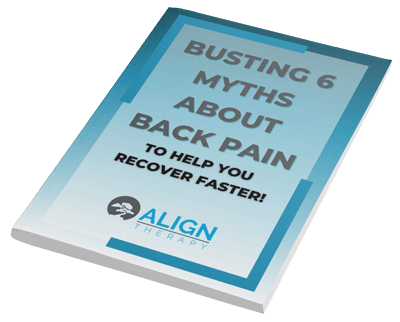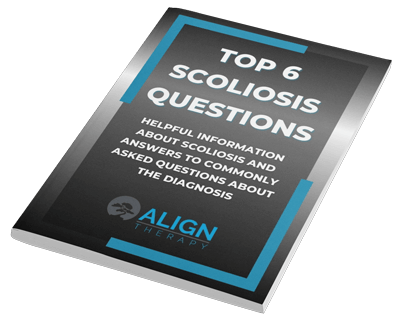Scoliosis: Why You Shouldn’t Be Ashamed
Scoliosis is a condition that affects millions of people worldwide, yet it remains one of the most misunderstood and stigmatized medical conditions. For many individuals, the journey with scoliosis is often accompanied by feelings of self-consciousness, shame, and embarrassment. Whether diagnosed in childhood or adulthood, scoliosis can be a challenging condition to navigate, especially when it feels like there’s a constant battle against societal perceptions of beauty and normality.
However, it’s important to recognize that scoliosis is not something to be ashamed of. It doesn’t define who you are, and it doesn’t diminish your worth. In fact, understanding scoliosis and embracing it with confidence can empower you to lead a fulfilling life, free from unnecessary shame or self-doubt.
In this blog, we’ll explore why scoliosis should never be a source of shame, why it’s important to embrace your condition, and how you can take steps toward building a positive relationship with your body, no matter what challenges it may face.
Scoliosis Is More Common Than You Think
One of the first reasons you should never feel ashamed of scoliosis is that it’s far more common than most people realize. According to the Scoliosis Research Society, approximately 2-3% of the population experiences some form of scoliosis. That’s around 6-9 million people in the United States alone.
Despite this prevalence, scoliosis is often kept under wraps, largely because people are unaware of how common it is or because of the stigma surrounding spinal deformities. This lack of visibility can lead to isolation, and people with scoliosis may feel like they are alone in their struggle. But the truth is, you are far from alone.
Every day, people of all ages with scoliosis are navigating their condition and living meaningful, active lives. Many successful athletes, actors, and public figures have scoliosis, and they don’t let it define their abilities or achievements. Whether or not you can see someone’s scoliosis doesn’t mean they aren’t dealing with the same issues, challenges, or frustrations.
You don’t have to suffer in silence. By sharing your experiences and learning from others, you can find comfort in knowing you are part of a larger community of people who understand exactly what you’re going through.
It’s Not Your Fault
Scoliosis, particularly the most common form known as idiopathic scoliosis, has no clear cause. It often develops in childhood, and researchers have yet to pinpoint one single factor responsible for the condition. Some people are born with structural issues in the spine, while others experience scoliosis as a result of conditions like cerebral palsy or muscular dystrophy. In some cases, scoliosis can be caused by injury, but more often, the cause is simply unknown.
Regardless of the cause, it’s important to understand that scoliosis is not your fault. It’s not a result of something you did or didn’t do, and it’s certainly not something that defines your worth. Society may not always understand this, but that doesn’t change the reality. Scoliosis is a medical condition, much like any other, and it should be treated with respect and compassion, not shame.
By acknowledging that scoliosis is not something you brought upon yourself, you can free yourself from the burden of unnecessary guilt. You did nothing wrong by having scoliosis, and it’s time to stop letting the opinions of others make you feel otherwise.
You Are More Than Your Spine
A common source of shame for many people with scoliosis is the way their body looks. The curve in the spine may cause visible changes in posture, such as a slouch or a noticeable asymmetry in the shoulders or hips. Some people may feel self-conscious about the way they look in clothes or about drawing attention to their scoliosis.
But here’s the truth: Your body, including its curves, scars, and imperfections, does not define your worth or beauty. We live in a world that often values appearance over function, but it’s important to remember that your true beauty comes from within, and it’s shaped by who you are, not by how straight your back is.
Your worth is not contingent on your posture or how your spine curves. It’s based on your values, your actions, and your impact on the world around you. Whether you’re confident in front of a crowd or simply navigating the world on a quiet day, you have a unique purpose and meaning that goes far beyond how you look.
Embrace your body as it is. Yes, it may have a curve, but that doesn’t mean it’s any less capable, powerful, or deserving of love and acceptance. By shifting your mindset and embracing your scoliosis, you can begin to appreciate your body for the strength it shows in the face of adversity.
The Power of Knowledge and Empowerment
One of the most empowering things you can do for yourself when living with scoliosis is to educate yourself about the condition. Knowledge is power, and the more you understand about how scoliosis works, the less you’ll be affected by fear or shame.
Learning about scoliosis treatment options, such as physical therapy, exercises, and braces, can also give you the confidence you need to take control of your condition. Understanding that there are strategies and exercises that can help improve posture, strengthen your muscles, and reduce discomfort can help you feel more in control and less reliant on others’ opinions.
A key part of dealing with any medical condition is finding a treatment plan that works for you. Whether it involves strengthening your core muscles, using braces, or seeking out scoliosis-specific physical therapy, the more proactive you are in managing your condition, the more confident you’ll feel in your own ability to thrive.
Additionally, by sharing your knowledge and experiences with others, you can create a supportive network of people who are on the same journey. Advocacy and community support are powerful tools for breaking the stigma surrounding scoliosis. You’ll realize that your voice is important and that your experience with scoliosis can inspire others to embrace their own condition with pride.
The Journey to Self-Acceptance
Self-acceptance is key to overcoming the stigma often associated with scoliosis. It can be easy to feel isolated or embarrassed, especially when facing a condition that others might not understand. However, accepting yourself as you are is the first step toward healing and finding peace.
Start by practicing self-compassion. Understand that it’s okay to have difficult days, but also recognize that your condition does not define you. You are not your scoliosis— you are the person who manages it and continues to live your life fully, regardless of the challenges.
Support from others can be incredibly valuable. Whether you join a scoliosis support group, seek therapy, or connect with others who share similar experiences, knowing you’re not alone in your journey can help alleviate feelings of shame. Remember, there is no shame in needing help, and reaching out for support is a sign of strength.
Conclusion
Scoliosis is not something you need to feel ashamed of. It’s a medical condition that affects millions of people, but it doesn’t define your worth, beauty, or potential. By embracing your scoliosis, educating yourself about it, and focusing on the strength it takes to manage the condition, you can break free from the shame and live a confident, empowered life. No matter how your spine curves, you are deserving of love, acceptance, and respect. Don’t let scoliosis limit you from living your best life.



